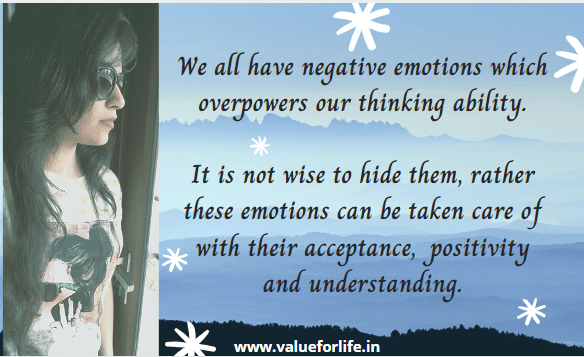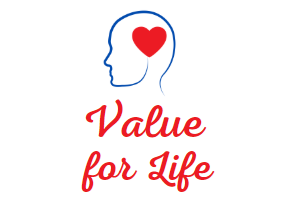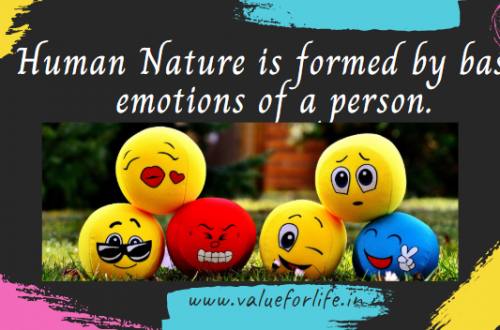
Top 10 negative emotions and how do they affect us?
There are several types of negative emotions. Today we will discuss about 10 major negative emotions which we all have and demonstrate at some point of our life.
The Yin and Yang concept of dualism states that there is good in bad and little bit of bad in good. In every human’s life the greater area of good or bad depends upon the situation ad the phase of life which he/she face.
How do negative emotions affect us?
It is important to manage these negative emotions the moment they star –
At Conscious level –
Feeling negative emotions on a regular period of time may create a chronic stress situation inside us.
Our thoughts make us feel a situation in a particular way called perception. We may think positive or negative about the same situation. This can be controlled by our conscious mind by deciding what’s truly right and wrong to think. This is the level where we should manage our emotions towards the right direction.
At Subconscious Level –
On repetition of the same thoughts, we develop certain types of regular emotions. These emotions travel from our conscious mind into our subconscious mind. I.e. we feel the same way without analysing the situation. At this level we can still control them and change our thought’s direction to positive ones. This can be done by positive reinforcement.
At Super-conscious Level –
Once these negative emotions enter into our unconscious mind or super-conscious mind then they become a part of our permanent memory. We cannot access this level of our mind. Therefore it becomes very difficult to change our emotions at this level. In this case we may react very badly in some neutral situation without even realizing the reason for our anger.
Therefore it is very important that the moment we realize that a negative emotion has triggered; the very moment we have to channelize it to a positive one without any delay.
For Example – It has also been observed there are many women all over the world who do not discuss what’s in their heart. They don’t express their emotions for years which result in stress accumulated inside their bodies. This literally affects them somewhere in their reproductive & digestive system.
Let’s go through these emotions and how to manage them.
1. Criticizing
Criticizing/ condemn or denounce can be beneficial or hampering. But this emotion has a habit of thinking about a situation in its worst scenario. This leads to a pessimist behaviour. It may affect your thought process in taking risky decisions. There are parents who develop criticizing behaviour due to feelings of over protection for their children. But in the long term they don’t realise that if the kid will not take risk then it may hinder his/her growth. The kids may develop confidence and trust issues. In this scenario telling both pros and cons of a situation can be helpful for the kid to analyse himself.
2. Sadness
Sadness/ sorrow/ dejection/ despair has the aura of silence, depression and sinking feeling around it. It’s important to find the root cause of being sad and refill the memory with a positive belief. People who are sad most of the time have forgotten the root cause. They generally connect all small problems and feel that they do good but negative things happen with them. It’s better to empathise with those people and move on.
3. Manipulation
Manipulation is controlling and twisting the situation’s facts for our own benefit. As the word suggests manipulation makes us sound different but our intentions are different. Try to connect this with the phrase “fake it till you make it” but we don’t want to make it here. This simply means when a person manipulates things regularly, it becomes a habit. The person may start exercising this habit at places where it is not even required. Even a good person can be manipulative. Because a good person wants everyone to be happy. In order to do so this type of person may manipulate the way they present the same information in front of different people.
4. Jealousy
When we are jealous/ grudge/envy of someone we are focussing on analysing that person more. We spend more time thinking why the other has more than us. We don’t think about what our special talent is. People who are mostly in a jealous state are not aware of their own talent and weakness. They waste a lot of time either in thinking or disturbing those they are jealous of. A positive emotion rather than jealousy is inspiration where we can learn a few traits from the person who inspires us.
5. Anger
Anger/ irritation/ rage/ fury is a very intense emotion where the adrenaline and heart beat in our body spikes up. In a few cases it can be useful for us as it helps to vent out our frustration and make us light from within . Like in situations where we have to defend ourselves or say no violence. But in most of the cases it consumes all our focus to a strong negative energy. Anger is like a disorder which leads to stress, BP, Anxiety, headache, stomach ache and many problems where we are not able to control ourselves at all. As the causes of anger are many the strategies of anger management follow the root cause and effect.
6. Fear/ Terror/ Distress
When we start developing fear for 1 thing; we become vulnerable to have fear for other things. Why does this happen? Because we are connecting loose links to our main fear. Fear is a sinking feeling of harm or pain which may happen to us. In many cases facing our fear and going through it reduces its effect on us. Because many times our fear is more of our imagination rather than reality.
7. Anxiety / Panic
Anxiety is the repetition of disturbing thoughts in the mind. It causes tension and stress in the mind as well as our body. A small level of anxiety which helps us to be prepared better can be considered good. For example performance on stage, job interview, wedding, first day at new school etc. But generally it takes the form of panic where a human is not able to think rationally. That is the time when we should not talk much but understand the overall situation.
8. Self Abandonment or Loneliness
Many people, when they face problems, try to abandon themselves and after sometime they think they are lonely and no one cares for them. This is a very common emotion. Here a person first tries to avoid family & friends. This gives an impression to others that they need their space or time alone to figure out things. Others get a message that once they feel fine they will be available to talk. But on the other side the same person starts feeling that nobody is asking them about their problem and they are lonely in this world. However self aware and mature people do self abandonment for greater enlightenment. When self abandonment is done without expecting anything from anyone and for a positive objective then only it is good. In this case there is no feeling of loneliness.
9. Hate
Sometimes we develop tremendous hate for someone or something. Reasons can be that person or thing has caused some pain/ problem in our life. We may have lost someone close due to that person. The person is violent and has snatched away our peace. If we have already distant ourselves and it is past then we need to let go of this emotion. This can be done by either forgiving that person or putting it on destiny. Hate is a self destructive emotion where we tend to think bad about the person or thing we hate even at times when they have provided us benefit.
10. Over sympathising
Some people are over sympathising or we experience such emotion at some point of time. We don’t use the word “No” for anyone and we become the punching bag. A “giver” is the one who is very vulnerable. All sad/ angry/ lonely/ fearful people first seek their company to load their problems on them. A sympathetic person listens to everyone’s problems and feels their pain. This really influences their peace and make them think that the world is full of problems.





